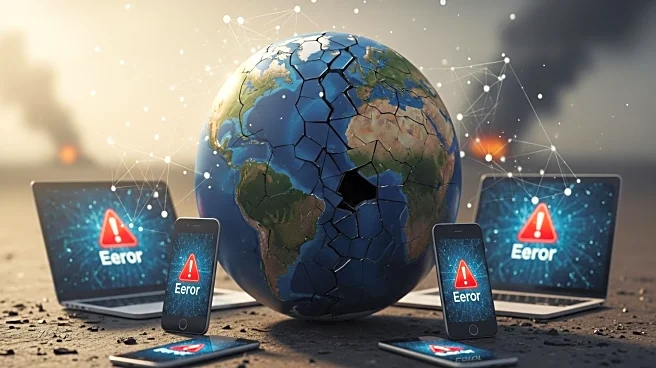What is the story about?
What's Happening?
Afghanistan is experiencing a significant internet shutdown, entering its second day as the Taliban has cut off nearly all digital and phone links with the outside world. This disruption has grounded planes and closed businesses in Kabul, the capital. The Taliban's actions have left Afghanistan almost completely cut off from the outside world, exacerbating the country's humanitarian crisis, which includes the aftermath of a devastating earthquake, the return of millions of refugees, and a severe drought. The United Nations has called for the restoration of connections, highlighting the significant harm this outage is inflicting on the Afghan people.
Why It's Important?
The internet blackout in Afghanistan has far-reaching implications, affecting various sectors including banking, healthcare, and education. The disruption of telecommunications is crippling the country's financial systems and isolating women and girls, who have increasingly relied on digital platforms for education and community. The blackout also limits access to emergency services and medical care, further deepening the humanitarian crisis in a country already struggling with natural disasters and economic instability. The Taliban's decision to cut off internet access could also backfire by increasing public frustration and criticism of the regime.
What's Next?
The United Nations and other international bodies are likely to continue pressuring the Taliban to restore internet access. The Taliban may eventually restore some connectivity, but it is expected to be limited and slow. The ongoing situation could lead to increased international isolation for the Taliban regime, as well as internal dissent as Afghan citizens face mounting challenges in their daily lives.
Beyond the Headlines
The internet shutdown in Afghanistan highlights the broader issue of digital rights and access to information as fundamental human rights. The Taliban's actions underscore the tension between traditional governance and modern technology, raising questions about the future of digital freedoms in the country. The situation also reflects the challenges faced by authoritarian regimes in controlling information flow while maintaining public order.














